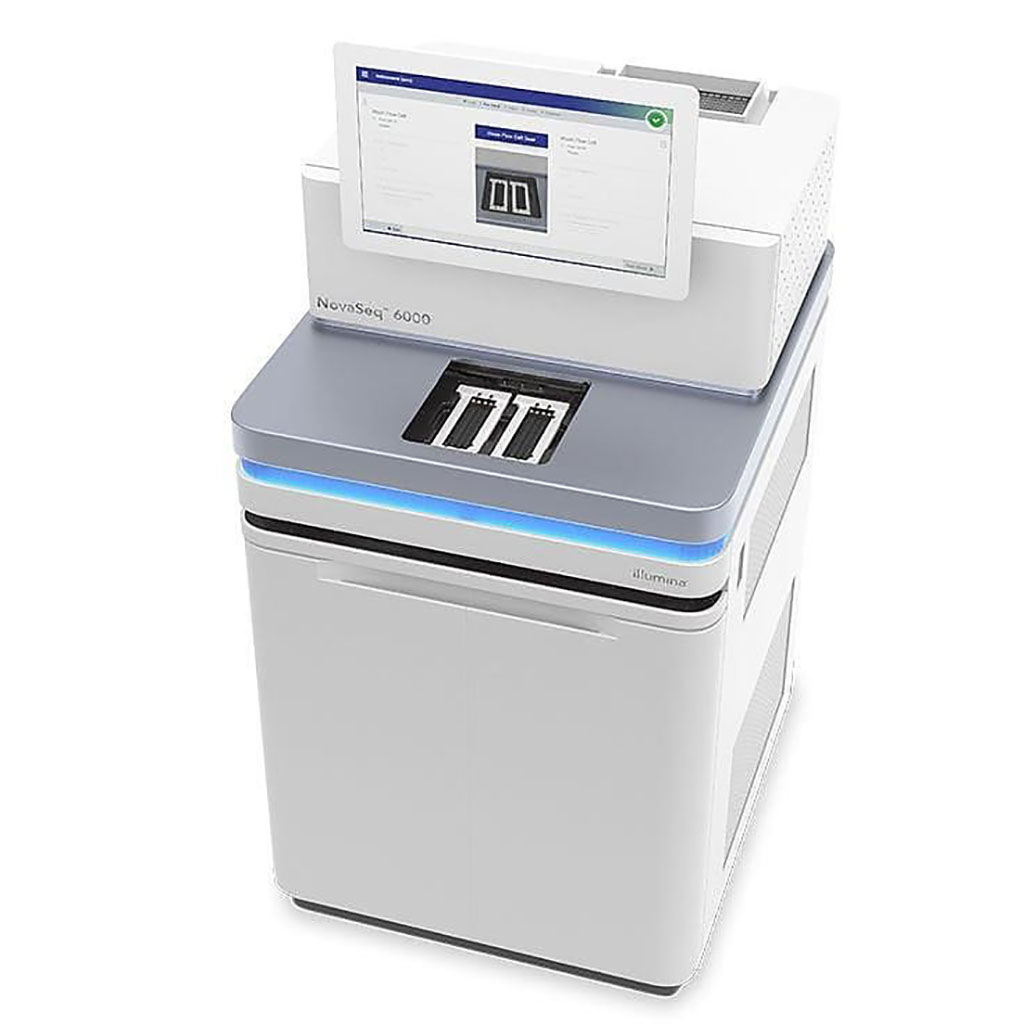Genomic Screening Can Identify Risk for Amyloid Cardiomyopathy
By LabMedica International staff writers
Posted on 15 Dec 2021
Transthyretin amyloidosis (ATTR) a is a rare, progressive disease characterized by the abnormal buildup of amyloid deposits composed of misfolded transthyretin protein in the body’s organs and tissues. ATTR can be hereditary and lead to a spectrum of other diseases and conditions, including cardiomyopathy, a common precursor to heart failure.Posted on 15 Dec 2021
Although many cases of ATTR are attributed to age-related misaggregation of genetically normal (“wild-type”) transthyretin, pathogenic or likely pathogenic (P/LP) variants in the transthyretin gene (TTR) are also known to cause protein misfolding, leading to hereditary disease (hATTR). Identifying individuals at risk through systematic screening for genomic variants in TTR, rather than symptom-based clinical ascertainment, could both clarify the true scope of the disease.

Image: The NovaSeq 6000 offers deeper and broader coverage through advanced applications for a comprehensive view of the genome and unlocks the full spectrum of genetic variation and biological function with high-throughput sequencing (Photo courtesy of Illumina)
Medical Scientists at Geisinger Medical Center (Danville, PA, USA) and their colleagues identified 157 patients who carried a known disease-causing TTR variant among the 134,753 patients studied. Related heart-disease diagnoses, including cardiomyopathy and heart failure, were significantly more likely in those 60 and older, but only two of the 157 patients identified already had a clinical diagnosis of amyloidosis.
Genomic DNA was isolated from patients’ blood or saliva. Exome sequencing was performed in collaboration with Regeneron Genetics Center. VCRome probes, (Roche Nimblegen, Pleasanton, CA, USA) or a version of the xGEN probe (Integrated DNA Technologies, Coralville, IA, USA) were used for target sequence capture. Sequencing was performed by paired end 75bp reads on either an Illumina HiSeq2500 or NovaSeq (Illumina, San Diego, CA, USA).
The team identified 157 of 134,753 (0.12%) individuals with P/LP TTR variants (43% male, median age 52 [Q1-Q3: 37–61] years). Seven P/LP variants accounted for all observations, the majority being V122I (p.V142I; 113, 0.08%). Approximately 60% (n = 91) of individuals with P/LP TTR variants (all V122I) had African ancestry. Diagnoses of amyloidosis were limited (two of 157 patients), although related heart disease diagnoses, including cardiomyopathy and heart failure, were significantly increased in individuals with P/LP TTR variants who were aged >60 years. Fourteen percent (seven of 49) of individuals aged ≥60 or older with a P/LP TTR variant had heart disease and ventricular septal thickness >1.2 cm, only one of whom was diagnosed with amyloidosis.
Christopher Haggerty, PhD, an associate professor and senior author of the study, said, “Historically, hereditary amyloidosis has been underdiagnosed, which can be a burden on families for generations. A genetic-screening approach to identifying TTR gene variants has the potential to diagnose previously unrecognized cases of ATTR and identify patients at risk for developing cardiomyopathy and other diseases. If we can identify this risk earlier in a patient’s life, we’ll have opportunities to improve treatment.”
The authors concluded that individuals with P/LP TTR variants identified by genomic screening have increased odds of heart disease after age 60 years, although amyloidosis is likely underdiagnosed without knowledge of the genetic variant. The study was published on October 19, 2021 in the Journal of the American College of Cardiology.
Related Links:
Geisinger Medical Center
Roche Nimblegen
Integrated DNA Technologies
Illumina













